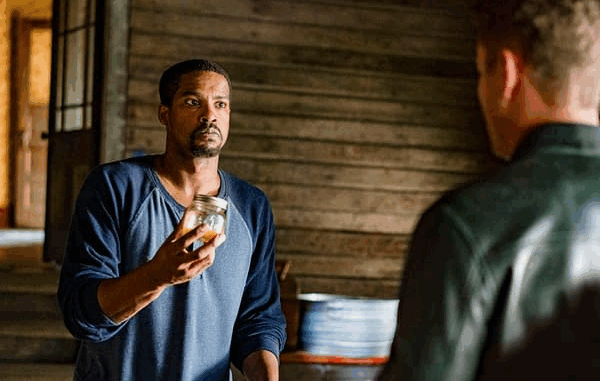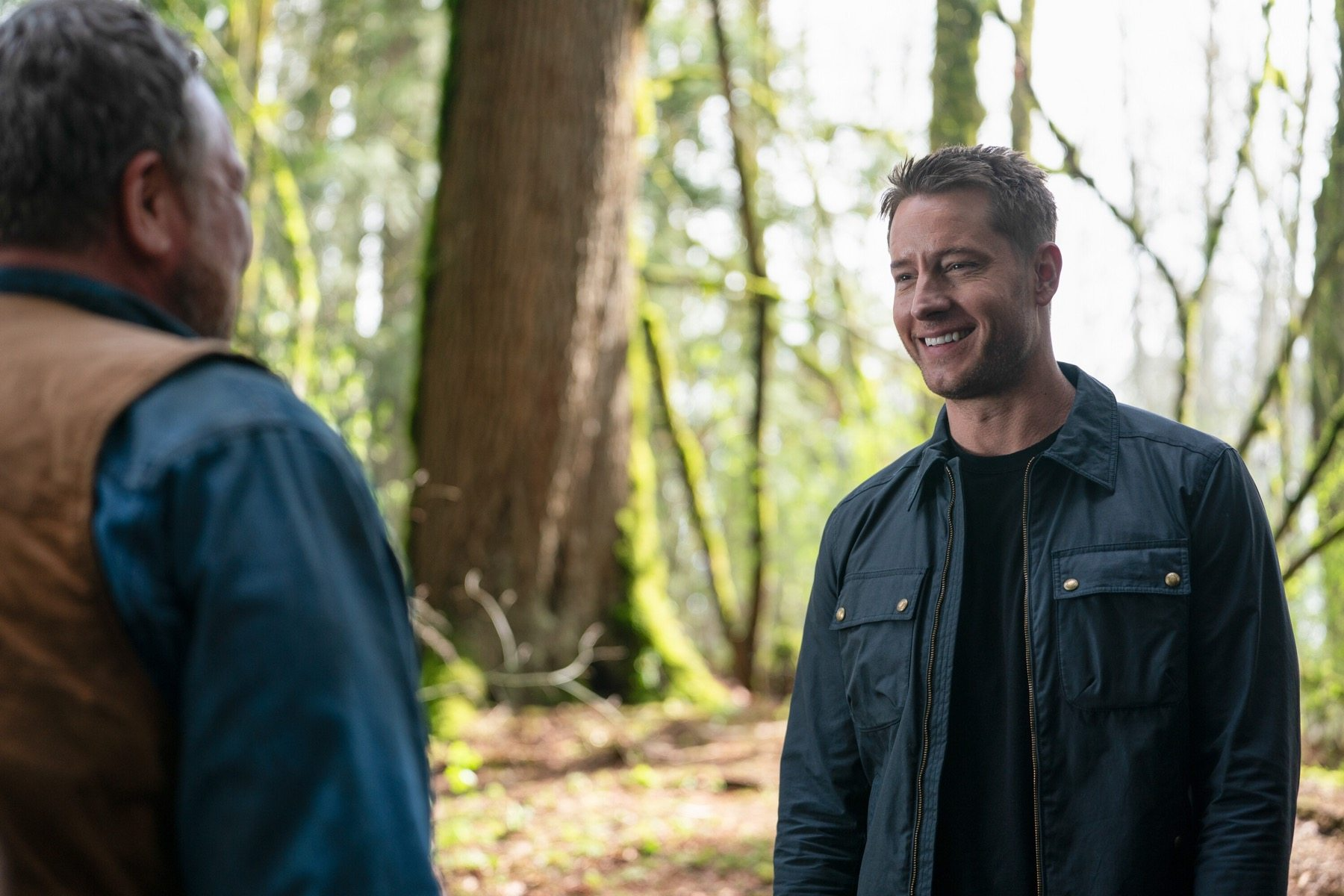
At first glance, Tracker appears to be a series driven by action and adventure—a man chasing missing persons across the country, relying on wits, wilderness skills, and calculated risks. But beneath the dust of backroads and the intensity of high-stakes cases lies something much deeper: a fractured family legacy that shapes everything Colter Shaw does. This emotional throughline is more than backstory—it’s the beating heart of the series. In this article, we explore how Colter’s family history defines his mission, his relationships, and ultimately, the show’s most human themes.
The Shaw Family: A Foundation of Conflict and Mystery
The mystery at the center of Tracker isn’t just the week-to-week cases Colter solves. It’s also the mystery of his own family—particularly his father’s death, his mother’s silence, and the different paths taken by his siblings. Colter’s upbringing in a survivalist compound run by his mentally unstable father is not just an interesting quirk—it’s the wound that drives him.
His father, Ashton Shaw, taught Colter and his siblings how to survive in the wilderness, distrust outsiders, and see threats in every shadow. While these skills make Colter a world-class tracker, they also left him emotionally scarred. The series slowly reveals the depth of Ashton’s paranoia, and how it tore the family apart.
This duality—Colter’s talents and trauma being born from the same place—makes the show emotionally rich. He is constantly reconciling his past, trying to use what he learned to do good, while never fully escaping the damage that came with it.
Siblings on Diverging Paths
One of the most compelling ongoing storylines in Tracker is Colter’s tense and complex relationship with his siblings, Russell and Dory Shaw. They all share the same childhood experience, but they’ve responded to it in drastically different ways.
-
Russell, Colter’s brother, appears to have embraced their father’s worldview, sinking deeper into a life of secrecy and perhaps even extremism. Russell often challenges Colter’s interpretation of their past and is determined to uncover hidden truths—regardless of the cost. His appearances on the show are emotionally charged and confrontational, representing the darker path that Colter might have taken.
-
Dory, on the other hand, has sought emotional healing and rationality. She’s more grounded, more open to therapy and reconciliation, and less consumed by conspiracy or vengeance. Her role is often that of the peacemaker or the emotional voice of reason. When she appears, the show leans into themes of healing, forgiveness, and introspection.
The contrast between the siblings adds layers to Tracker‘s storytelling. Each of them represents a different way of coping with trauma: anger, detachment, and hope. Their interactions raise questions about whether family trauma defines us forever—or if we can break free from its grip.
Motherhood, Silence, and Survival

The Shaw matriarch plays a quieter, but no less important, role in the emotional core of Tracker. Colter’s mother, Mary Shaw, is a figure steeped in ambiguity and sorrow. While she tried to protect her children, she also stayed with Ashton for far too long, watching his paranoia grow unchecked. Her silence and complicity, however well-intentioned, left emotional scars on her children.
As the series unfolds, Mary’s character is revealed through flashbacks and sparse but powerful present-day interactions. Her scenes are laced with regret, guilt, and attempts at redemption. She is not villainized, nor is she sainted. Instead, Tracker treats her with compassion and nuance—a woman who survived a broken world and did her best, even if that wasn’t always enough.
Colter’s moments with her are some of the show’s most emotionally revealing. They expose his longing for connection, his need for answers, and his internal struggle between anger and forgiveness.
Colter’s Lone-Wolf Persona: A Byproduct of Family Fracture
Colter often works alone, and this is not just a professional choice—it’s a personal one. His reluctance to form lasting bonds, his tendency to leave town after each case, and his discomfort with emotional intimacy all stem from his fractured family background.
He fears abandonment and betrayal. He struggles with control and trust. His childhood was spent in a high-alert environment where emotional vulnerability could be dangerous. These instincts carry into his adult life, often making him a difficult partner and a distant friend.
Yet, viewers can see the cracks in this armor. In his moments with victims’ families, or in quiet scenes with Dory or Reenie, we glimpse the man behind the mask—a man who desperately wants connection, even if he doesn’t know how to sustain it.
Justice as a Family Legacy
Colter’s sense of justice is not fueled by a desire for law and order—it’s driven by the chaos of his own childhood. He seeks to bring clarity to other families because he never had that for his own. Each case he takes on is a small act of penance, a way to make sense of the senselessness that shaped him.
In this way, Tracker turns personal trauma into a universal motivator. Colter’s commitment to helping others find resolution is rooted in his own unresolved story. This parallel makes each episode more than just a procedural—it’s a meditation on healing, truth, and the ties that bind.
Foreshadowing a Deeper Family Revelation
As Tracker progresses, it’s clear that Colter’s search isn’t just for missing people—it’s also for answers about his own family. Flashbacks, old letters, and cryptic clues about Ashton Shaw’s death and motivations suggest a slow-burning mystery that could redefine everything Colter believes.
This underlying family narrative creates a compelling emotional arc. It ensures that Tracker is not just episodic but serialized in the best way—hooking viewers not just with the “what” of each week’s case, but with the “why” of Colter’s personal quest.
Conclusion
Behind every trail Colter Shaw follows is a shadow from his past. Tracker uses family not just as a backdrop, but as the emotional engine of the entire series. Through fractured relationships, haunting memories, and complicated sibling dynamics, we see a man driven not by heroism, but by the need to reconcile his own pain.
In a genre that often skims the emotional surface, Tracker digs deeper. It reminds us that family can be both our wound and our reason for healing. And in Colter Shaw, we see a man walking that fine line—one step, one case, and one truth at a time.
